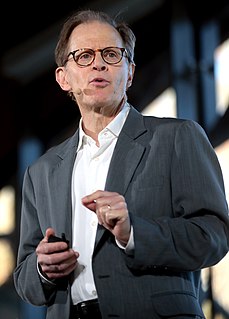A Quote by Aditi Shankardass
When looking at the brain, it is important to go beyond its structure to its function. This is because often in cognitive disorders, the structure of the brain is intact, but its function is compromised.
Related Quotes
The elegant study... is consistent with the themes of modern cognitive neuroscience . Every aspect of thought and emotion is rooted in brain structure and function, including many psychological disorders and, presumably, genius. The study confirms that the brain is a modular system comprising multiple intelligences, mostly nonverbal.
Most of our brain cells are glial cells, once thought to be mere support cells, but now understood as having a critical role in brain function. Glial cells in the human brain are markedly different from glial cells in other brains, suggesting that they may be important in the evolution of brain function.
It was one time when people thought the value of the fine structure constant was important. Now of course it's still important, of course, as a practical matter,but we now know that the value it has is a function, that in any fundamental theory you derive the fine structure constant as a function of all sorts of mass ratios and so on and it's not really that fundamental.
One of the things cognitive science teaches us is that when people define their very identity by a worldview, or a narrative, or a mode of thought, they are unlikely to change-for the simple reason that it is physically part of their brain, and so many other aspects of their brain structure would also have to change; that change is highly unlikely.
My office has two buildings that function like the right and left sides of the brain. There's a room where everything is being edited for an upcoming project, but you can pull out of that into a tranquil space to work in a different, more solitary medium. It's an architectural unfolding of the process instead of just one chaotic structure.
The brain is a dynamic system that constantly processes and creates your reality. It works best if you balance all the things that the brain is good at. The brain is good at being adaptable, flexible, creative, and intelligent. But it's also good at playing and just being. A balanced life provides time - every day if possible - so that every function of the brain is allowed to come alive and flourish.


































